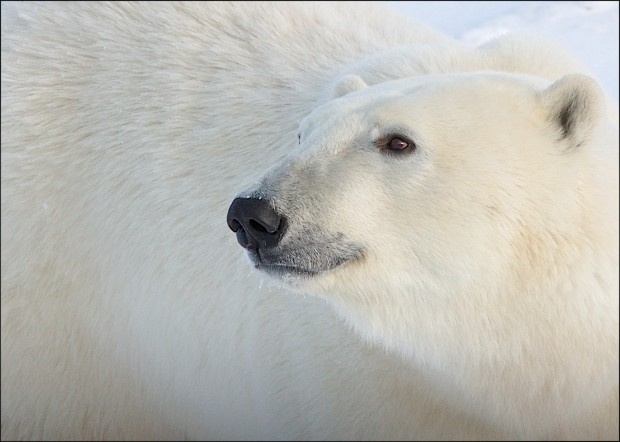We have much more to do and your continued support is needed now more than ever.
Scientists Propose Desperate Measures to Save Struggling Polar Bears

With climate change bearing down on polar bears and their Arctic home, and without a plan in place for cutting carbon pollution by 50 percent by 2030, scientists have started preparing rescue plans for the imperiled animals. These “crisis management plans,” laid out in the journal Conservation Letters, include some desperate strategies such as feeding the bears during increasingly long ice-free periods — a measure that goes against rule No. 1 for bear biologists.
However, as NWF bear biologist Sterling Miller explains, these proposed crisis plans are most appropriately viewed as pleas for action on climate change as they do not provide any real answers to the problem of starving bears:
“The reality is that unless something is done soon to curb global warming, there is no hope for polar bears. Measures like providing food for the bears are simply not sustainable in the long run. At best, they will only work as a stopgap solution to buy the bears a little more time until climate change impacts can be reversed. They are not long-term solutions.”
Change happening faster than expected
With sea ice melting faster than originally projected, scientists are starting to prepare for the worst. Just one exceptionally bad year of ice melt could send polar bear populations plummeting, requiring governments around the world to react quickly. In addition to providing food directly to polar bears, scientists are floating other non-conventional ideas, such as moving bears from southern areas to northern ones. To ensure the safety of people, some polar bears may need to be killed or confined in short-term holding pens.
As highlighted in NWF’s recent report, Wildlife in a Warming World, polar bears are not the only animals struggling to survive climate change. Without meaningful action to address the cause of climate change—carbon pollution—treasured species from around the planet will begin to continue to suffer losses.
Still time to act
Fortunately, renewed hope is on the horizon. From the emphasis put on climate change in President Obama’s inaugural address to the recent creation of the Bicameral Climate Change Task Force in Congress, our elected leaders are signaling a new commitment to cutting carbon pollution.
It is not too late for polar bears. We can still avoid the worst impacts of climate change and give arctic wildlife a fighting chance with your help. Take action/Donate
![]() Speak up for hungry polar bears and their cubs—urge President Obama to set strong limits on carbon pollution.
Speak up for hungry polar bears and their cubs—urge President Obama to set strong limits on carbon pollution.





















